Discover how to learn Halloween vocabulary in English with games, songs, and hands-on activities in a fun way
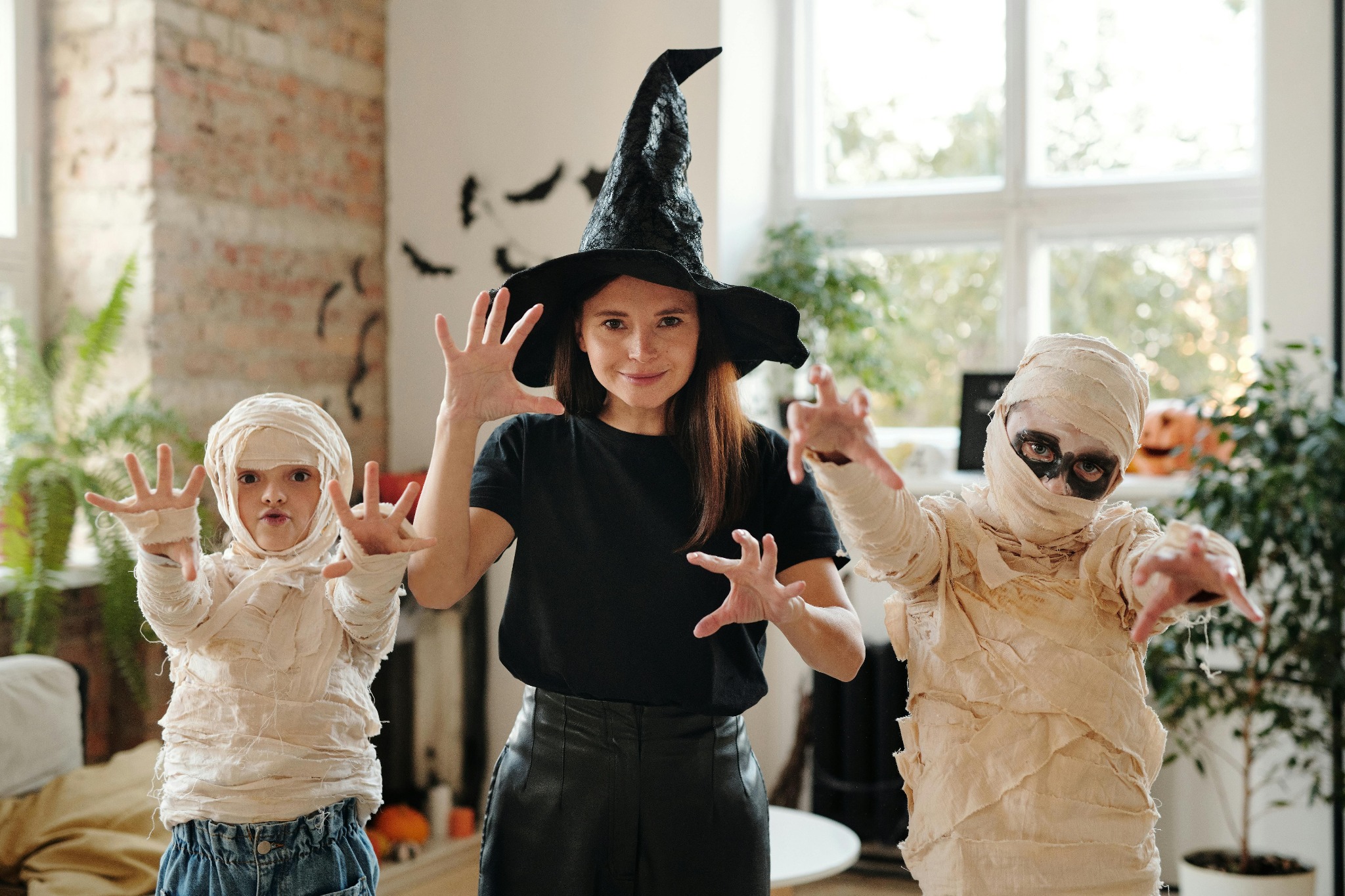
Halloween is now part of our cultural calendar. More and more children, teenagers and even adults enjoy decorating pumpkins, dressing up and embracing this Anglo-Saxon tradition. But beyond costumes and sweets, this season is also the perfect opportunity to learn Halloween vocabulary in English in a fun way.
At English Summer, where we have been teaching English to children and teenagers in our camps and courses for over 40 years, we have seen how working on vocabulary in English helps make learning more natural and engaging. Learning words associated with this celebration is easy because students use them in games, songs, crafts and even theatre. And the best part: since they are linked to positive emotions, the retention of new vocabulary increases significantly.
Why Learn Halloween Vocabulary in English?
Halloween is a perfect example of how language doesn’t stay in the books: it comes to life. By learning Halloween vocabulary, children not only expand their vocabulary, but also get closer to Anglo-Saxon culture.
In our classes and activities, we see that when students learn words related to ghosts, witches or haunted houses, memorization becomes much easier. This happens because the content is associated with emotion and experience: dressing up as a witch, carving a pumpkin, or playing trick or treat.
What’s more, Halloween vocabulary is useful beyond the celebration itself. Many of these words appear in stories, movies or songs, so knowing them improves overall language comprehension.
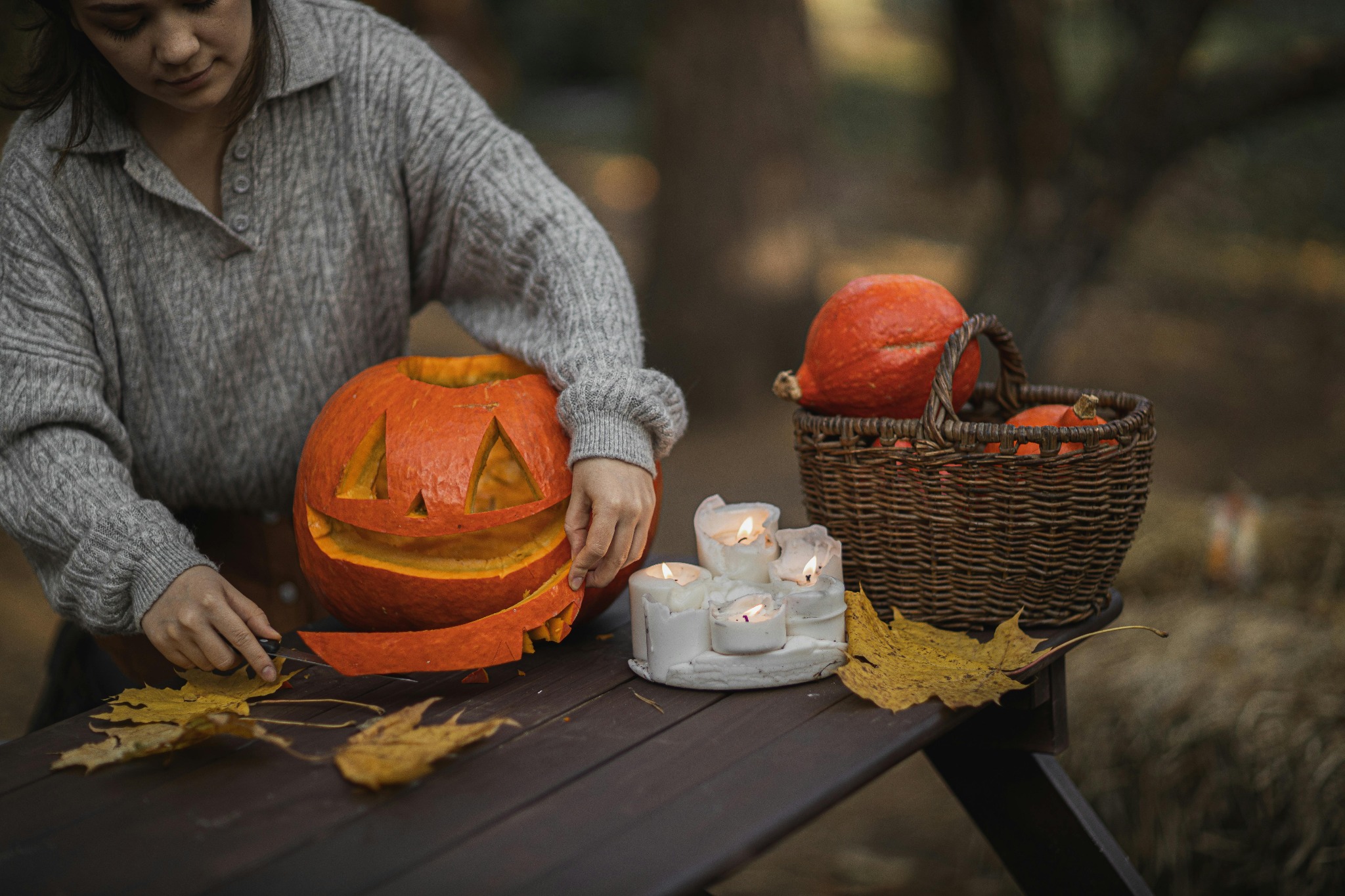
Key Halloween Vocabulary in English
Basic Vocabulary to Start
Halloween vocabulary in English doesn’t have to be complicated. These are the most common and easy-to-remember words:
Pumpkin → Calabaza
Witch → Bruja
Ghost → Fantasma
Spider → Araña
Bat → Murciélago
Costume → Disfraz
Trick or treat → Truco o trato
In the activities we propose, these words are used constantly. If children are painting a pumpkin, they won’t say “calabaza” anymore—they’ll say pumpkin, because the object is right in front of them and they naturally associate it with the word.
Halloween Vocabulary for the More Adventurous
Once students master the basics, we can add slightly more advanced words, such as:
Haunted house → Casa encantada
Cauldron → Caldero
Monster → Monstruo
Skeleton → Esqueleto
Zombie → Zombi
Vampire → Vampiro
This is where the fun really begins. With this type of vocabulary, you can create more dynamic activities like theatre plays, role-playing games or themed scavenger hunts—where each word comes to life in a playful context, allowing vocabulary to be learned through play.
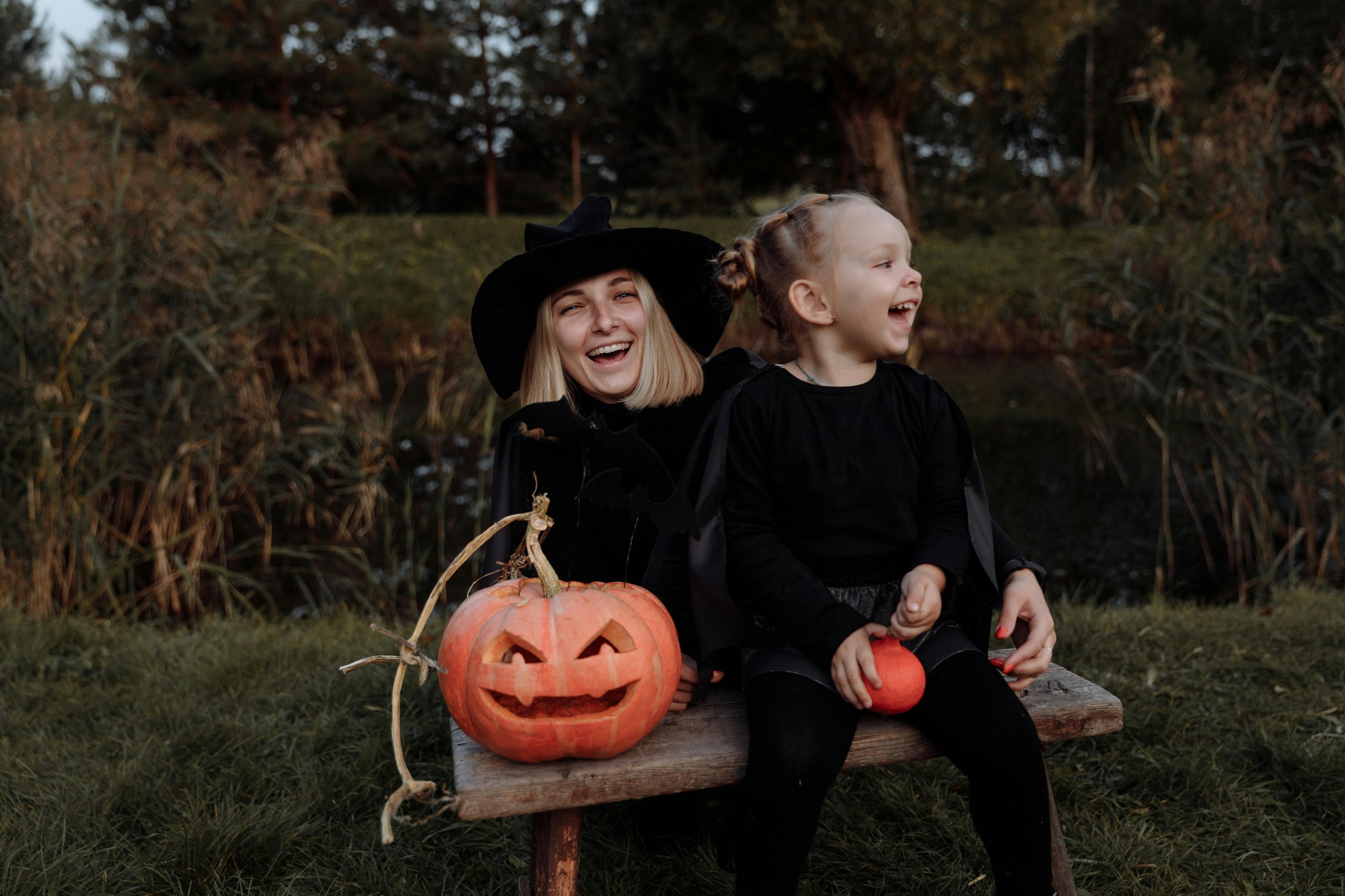
Useful Halloween Expressions
It’s not all about nouns. It’s also helpful to include simple phrases that children can use in games and performances, such as:
Happy Halloween! → ¡Feliz Halloween!
I’m scared! → ¡Estoy asustado!
Don’t be afraid → No tengas miedo
Let’s go trick or treating → Vamos a hacer truco o trato
Beware of the ghosts → Cuidado con los fantasmas
These types of expressions help students use Halloween vocabulary in complete sentences, improving fluency and boosting their confidence.
How to Learn Halloween Vocabulary in English in a Fun Way
Interactive Games
The key to memorizing Halloween vocabulary in English is playing. From memory cards to Halloween-themed treasure hunts, everything is easier when the student is having fun. For example:
Hide images of ghosts, bats or witches around the classroom.
Each time a student finds a card, they must say the word in English and use it in a sentence.
Prepare a Halloween bingo with words and pictures.
These types of activities encourage active participation, keep motivation high and help new vocabulary become naturally integrated into memory.
Songs and Theatre
Rhythm and performance are powerful allies in learning. A great way to practice is by preparing small theatre plays where students play Halloween characters: a witch preparing a potion, a vampire entering the scene, or a group of zombies dancing. By acting it out, vocabulary is memorized more naturally.
Children’s songs are also a very effective resource. A catchy melody with words like pumpkin, skeleton or ghost makes it easy for children to remember them, connecting language with music and movement.
Crafts and Decorations
Another foolproof resource is creativity. Making a skeleton mask or decorating a haunted house with cardboard is the perfect excuse to use Halloween vocabulary in a practical way. It’s not just about learning a word list, but about bringing those words to life in everyday activities.
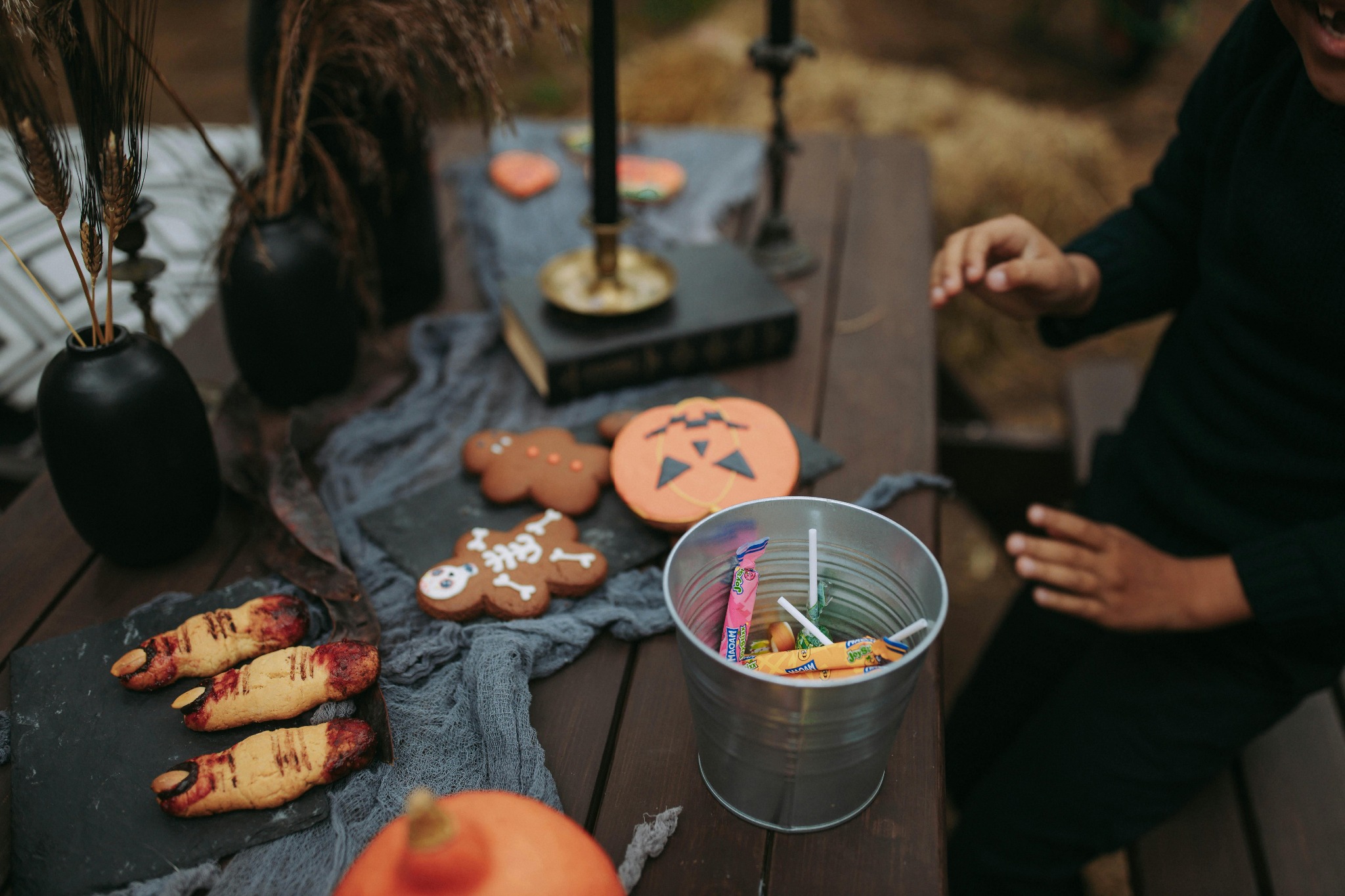
Sensory Experiences
You can also use the senses to reinforce learning. For example:
Touch a real pumpkin while repeating the word.
Listen to bat or ghost sounds and guess what they are.
Smell cinnamon candles while talking about Halloween night.
This multi-sensory approach strengthens memory and makes learning more complete and meaningful.
Practical Tips for Learning at Home
If you want to reinforce this Halloween vocabulary in English with your children or students, here are some easy-to-apply ideas:
Spend 10 minutes a day in October reviewing a group of words.
Use labels: place sticky notes around the house with words like pumpkin, bat or door so they see them constantly.
Practice with costumes: every time someone dresses up, name the costume in English.
Watch Halloween-themed cartoons or movies in the original version.
Create a themed menu: making spider cookies or pumpkin soup is a delicious way to learn new words.
In our experience at English Summer, when families get involved, results multiply. Learning English stops being an obligation and becomes a shared game.
Main Halloween Vocabulary in English
Pumpkin → Calabaza
Witch → Bruja
Ghost → Fantasma
Spider → Araña
Bat → Murciélago
Skeleton → Esqueleto
Zombie → Zombi
Vampire → Vampiro
Haunted House → Casa encantada
Cauldron → Caldero
Trick or treat → Truco o trato
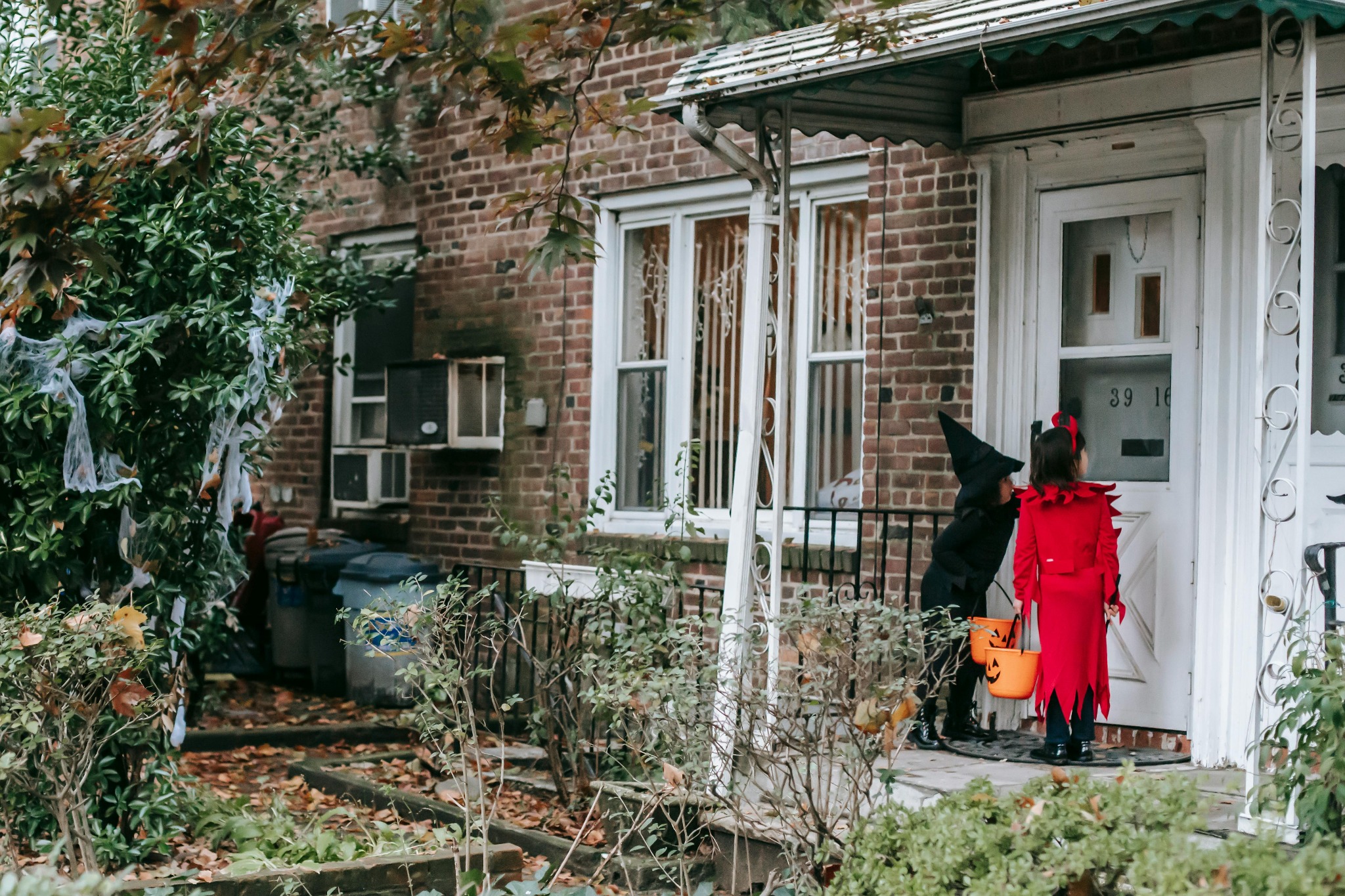
These words are ideal for reviewing with the family or printing out and putting on the fridge during the weeks leading up to Halloween.
Learning Halloween vocabulary is much more than memorizing lists: it’s about living a cultural and educational experience. From basic words like pumpkin or ghost to more complex expressions like haunted house, everything is learned better when it’s paired with games, creativity and emotion.
At English Summer, we believe in this way of learning. That’s why every activity is designed so students enjoy themselves while improving their English. If you want your children to live this experience, check out our programs and discover how we can help them learn in a unique, fun and effective way—with activities to learn English and improve pronunciation in our English camps.

